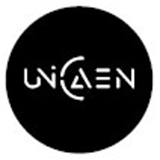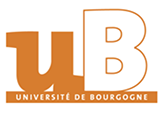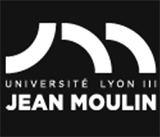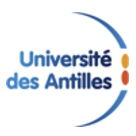Introduction
The University of the French Antilles is a French public university located in the French West Indies.
Overview
Student and Faculty Size: There are about 15,000 students and about 500 faculty and staff.
Subject Setting: The subject coverage is wide, including communications, literature, biology, political science, medicine, law, business, history, education, earth science, religion, mathematics, philosophy and many other disciplines.
History
The university was once part of a larger institution, the University of the French West Indies and Guyana, which was combined with the French Guiana campus. Later, due to funding disputes, it was separated into two different institutions on January 1, 2015, based on its components in French Guiana and the Lesser Antilles, namely the University of French Guiana and the University of the French Antilles.
Founded in 1982 Years.
School Strength
Teaching Quality: As a French public university, the teaching follows the strict standards of French higher education, focusing on the combination of theory and practice, and is committed to providing students with high-quality education and teaching services. It has trained many outstanding professionals and made important contributions to the development of the local and international community.
Scientific Research Level: Actively carry out scientific research activities, and have certain scientific research results in multiple disciplines, especially in the social, cultural, and environmental aspects of the Caribbean region. The research is unique and provides important intellectual support for the sustainable development of the region.
Institutional Nature
Public University.
Educational Philosophy
Focus on cultivating students' comprehensive literacy and cross-cultural communication skills, so that students can adapt to the multicultural environment under the background of globalization and have international vision and competitiveness.
Emphasis on the inheritance and innovation of knowledge, encourage students to actively explore and innovate in the learning process, and contribute to the promotion of discipline development and social progress.
Adhere to the purpose of education serving the society, closely combine with the needs of local social and economic development, cultivate talents with social responsibility and practical ability, and promote the sustainable development of the region.
Key laboratories and disciplines
Key laboratories: such as the Caribbean Social Science Laboratory, which focuses on the research of social phenomena, cultural heritage, social changes and other aspects in the Caribbean region, and provides important theoretical basis and practical guidance for the formulation of local social policies and cultural development.
Key disciplines:
Medicine: It has certain advantages in tropical medicine, public health and other fields. Combined with the local disease characteristics and health needs, it has carried out a series of targeted research and teaching work, which has played an important role in improving the health level of local residents.
Law: The research and teaching in international law, maritime law and other aspects are at a high level, providing professional support for the region's legal affairs and international cooperation.
Biology: The research results in marine biology, ecological protection and other directions are remarkable, and have made positive contributions to the protection of the ecological environment and biodiversity in the Caribbean region.
Faculty
The school has several faculties, including the Faculty of Humanities and Social Sciences, the Faculty of Law and Economics, the Faculty of Medicine and Health Sciences, the Faculty of Natural Sciences, the Faculty of Engineering, etc. Each faculty contains multiple colleges and majors, providing students with comprehensive and systematic subject education and professional training.
Ranking
According to the university ranking data in 2023, it ranks 130th in France, 3442nd in the world, 10682nd in influence, 4460th in openness, and 2412th in excellence.
Expenses
Tuition fees: The tuition fees for undergraduate degrees are usually 0-170 euros/school year, the tuition fees for master's degrees are 0-240 euros/school year, and the tuition fees for doctoral degrees are 0-500 euros/school year.
Living expenses: The monthly living expenses are about 2000 euros. Euros, including accommodation, food, transportation and other expenses.
Campus
Campus distribution: The university has three campuses, two of which are located in Guadeloupe, namely Fouille (Pointe-à-Pitre) Campus and Saint-Cloud Campus; the other is located in Schoerche Campus in Martinique. In addition, there is a campus of the Teacher Training Institute (IUFM) in Fort-de-France, and a medical campus of the La Menard Regional University Hospital in Le Lamentin.
Teaching facilities: The campus is equipped with modern teaching facilities such as laboratories, libraries, computer centers, etc., providing students with good learning and research conditions. The school's library has a rich collection of books, covering books and journals in multiple disciplines, providing students with a broad knowledge resource. In addition, the school also provides students with a variety of sports facilities and cultural activities to enrich students' extracurricular life.
-

University of Angers
-

University of Caen Normandy
-

University of Bordeaux
-

Claude Bernard University Lyon 1
-

University of Burgundy
-

CY Cergy Paris University
-

Clermont Auvergne University
-

University of Artois
-

Jean Moulin University Lyon 3
-

University of Franche-Comté
-

Mesoamerican University
-

Istmo University
-

Mariano Galvez University of Guatemala
-

Regional University of Guatemala
-

Galileo University
-

Francisco Marroquín University
-

Rafael Landívar University
-

University of the Valley of Guatemala
-

University of San Carlos of Guatemala
-

Technological Institute of Tlaxcala Plateau
-

Golfo University
-

Technological University of South Sonora
-

Technological University of Huejotzingo
-

Tizimín Institute of Technology
-

Chilpancingo Institute of Technology

